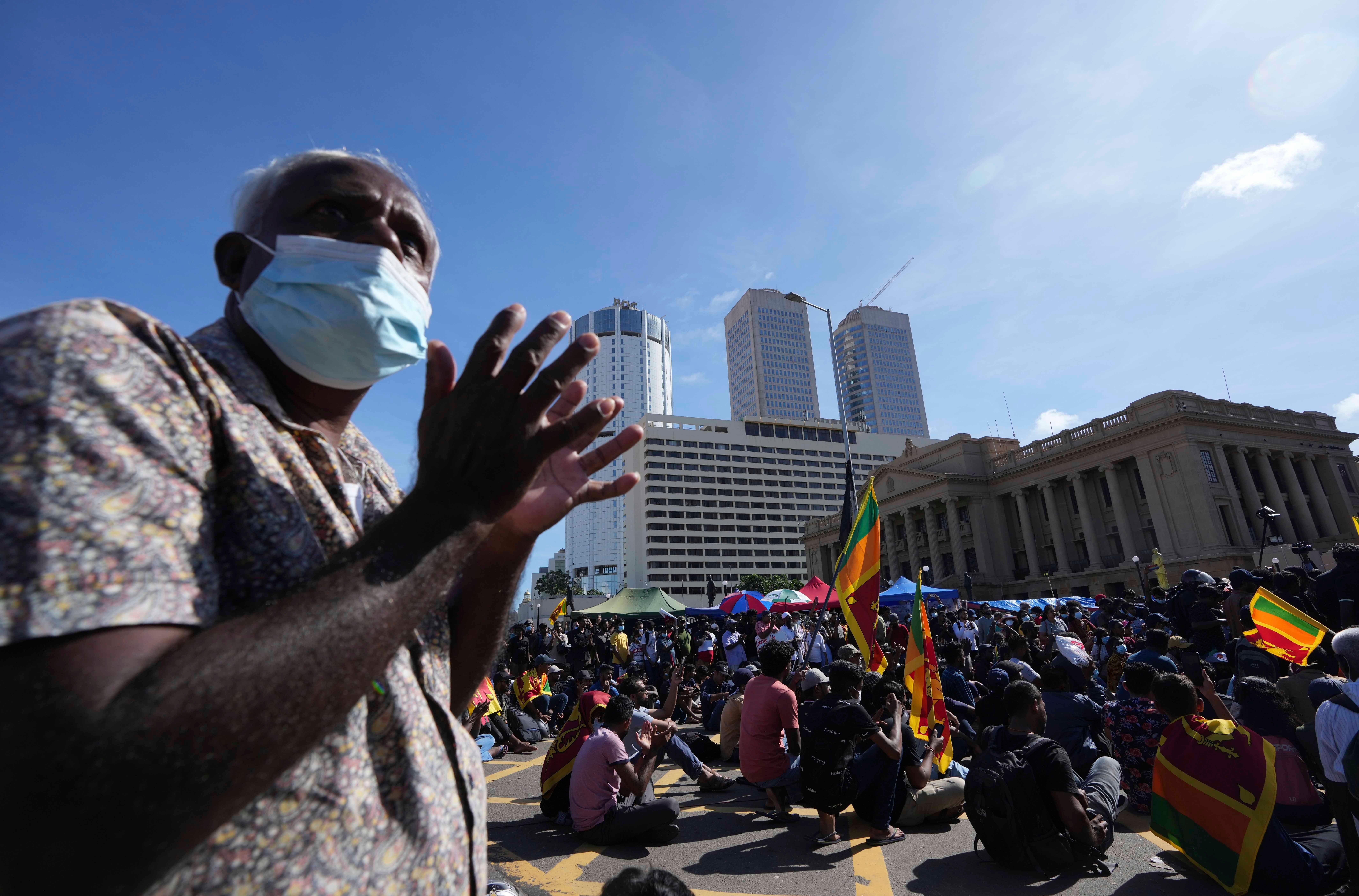Sri Lanka’s ‘debt default process has begun’ as protesters reject president’s offer of talks
Sri Lanka has been rocked by protests demanding government’s resignation for weeks
Your support helps us to tell the story
From reproductive rights to climate change to Big Tech, The Independent is on the ground when the story is developing. Whether it's investigating the financials of Elon Musk's pro-Trump PAC or producing our latest documentary, 'The A Word', which shines a light on the American women fighting for reproductive rights, we know how important it is to parse out the facts from the messaging.
At such a critical moment in US history, we need reporters on the ground. Your donation allows us to keep sending journalists to speak to both sides of the story.
The Independent is trusted by Americans across the entire political spectrum. And unlike many other quality news outlets, we choose not to lock Americans out of our reporting and analysis with paywalls. We believe quality journalism should be available to everyone, paid for by those who can afford it.
Your support makes all the difference.Cash-strapped Sri Lanka’s debt default process has begun, credit ranking agencies warned, as protesters rejected prime minister Mahinda Rajapaksa’s offer to hold talks.
S&P Global Ratings lowered the island nation’s foreign currency rating to “CC” from “CCC” citing the unprecedented economic crisis brought upon by dried foreign reserves.
“Sri Lanka’s debt restructuring process is likely to be complicated and may take months to complete,” the agency said in a statement. According to the financial service company, the “CC” rating stands for “default has not yet occurred, but is expected to be a virtual certainty”.
Similarly, Fitch Ratings downgraded the South Asian country’s assessment over its decision to suspend payments of foreign debt. It said “a sovereign default process has begun” and will further junk the country to RD “once a payment on an issuance is missed and the grace period has expired”.
Sri Lanka on Tuesday announced a pre-emptive default on all its foreign debt estimated to be about $51bn as a “last resort” to survive its worst financial meltdown since gaining independence in 1948. It said that the country would divert the crippling dwindling foreign reserves to importing essentials.
Scarcity of food, fuel, medicines and long power cuts have forced thousands of locals to protest against the Sri Lankan government over its handling of the crisis. The cry for the resignation of president Gotabaya Rajapaksa and his clan intensified last weekend when protesters occupied the entrance to the presidential offices.

On Wednesday, protesters rejected the prime minister’s offer to hold talks and continued with their demand for the Rajapaksas to step down from their position in power.
“The prime minister is ready to start talks with the protesters at Galle Face Green,” Mr Rajapaksa’s office had said in a statement, referring to a protest site that has become the centre of discontent.
However, rebutting the offer, one of the protesters was quoted by News 1st channel as saying: “We did not come here for talks.”
The protest site, a tent encampment in Colombo, has been growing in volume as “Gota Go Home” reverberated in the April heat.
Locals marked the beginning of Sri Lankan New Year on Thursday by boiling a small pot of milk at the protest site. “We used to say best wishes for the New Year. Now we say best wishes for the struggle,” Jayaratna Teekanoon, 56, said.
Addressing the nation on New Year, the president said the devastating crisis was the biggest challenge the country had faced in recent years. “We should overcome this challenge with unity and better understanding,” he said in a statement.
Sri Lanka is due to begin negotiations with the International Monetary Fund next week for a loan programme.
India is willing to extend up to $2bn in financial assistance to Sri Lanka as China remains silent of the specifics of its promised $2.5bn credit line. “We are definitely looking to help them out and are willing to offer more swap lines and loans,” an Indian source aware of various discussions told Reuters.
Indian finance minister Nirmala Sitharaman met Sri Lankan high commissioner to India Milinda Moragoda on Wednesday to review the status of the joint economic cooperation.
India has so far committed $1.9bn to the island nation in loans, credit lines and currency swaps. Ahead of the New Year, the Asian giant had also sent ships with sugar, rice and wheat - items of which it has a surplus.
Additional reporting by agencies

Join our commenting forum
Join thought-provoking conversations, follow other Independent readers and see their replies
Comments